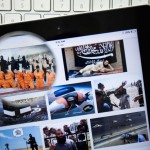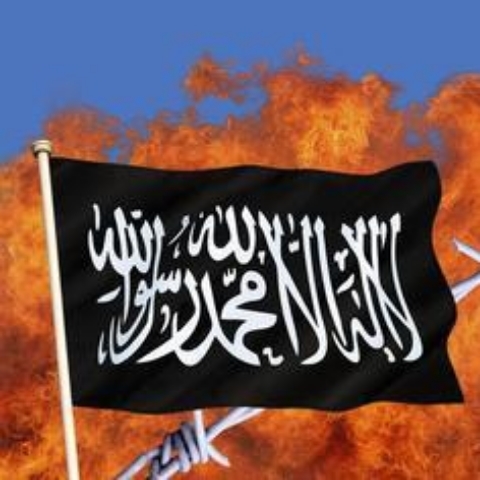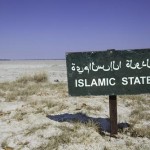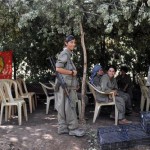These are not easy to read; imagine your families trying to deal with this.
“What prayers shall I say now?:
Father Anis Hanna explained in detail how life has now changed for the different minorities who once lived in peace for centuries under the reign of Islam in Iraq and Syria. In July, ISIS declared from different mosques in Mosul that, starting on 28 July 2014, new laws and rules would be applied to everyone living in the territories under the Islamic State. They also declared that after this date, the Islamic State’s forces will purify the Nineveh Plain and control all Christian villages.
The new Islamic laws consist of the following:
It is forbidden for any citizens (men, women and children) to wear Western-style clothes; all men should wear Afghan-style clothing and all women should be veiled from their heads to their toes
All men should have a long beard and should shave their heads and mustaches
All women are not allowed to work outside their homes and they are not allowed to go outside home to the market or elsewhere if they are not accompanied by a male member of the family
All liquor stores, barber and cosmetic shops were shut down and are not allowed to operate
The local TV and radio station are not allowed to broadcast any kind of entertainment and cultural or artistic programs; only religious songs and programs are allowed
All regular courts in the city were suspended and replaced by Islamic courts
All families are being forced to give their daughters as wives to the militants against the will of the parents and the young girls.
Kind of saved the worst for last, seems to me.
More from the Dominican Sisters living in Iraq:
You might be surprised that we are writing this letter so soon since you received the last one. But events are happening so quickly here shocking everybody because of its brutality and cruelty. . .When we arrived to the intersession of Mosul-Erbil, we were shocked to see a huge mess of cars driving very chaotically to Erbil. The view was beyond describing, as words cannot fully capture it. Men, pregnant women, children, handicaps and elderly were moving toward Erbil. There were Christians, Muslims Shiites, Yezeds and Shabak; some people were on foot, some were riding trunks of pick-up, lorry trunks, and motorcycles. There are three checkpoints to arrive in Erbil. It took us five hours, from mid-night to five o’clock, to pass the first one; we reached the second one at seven o’clock and the third one at eight thirty. We arrived the convent at 9:30 exhausted emotionally, physically and mentally. What we saw was unbearable; people were suffering for no reason but because of their sect, religion and trace. We felt like we were in a nightmare wishing that someone would waken us up or that when the sun comes out it will be all over. But it was not the case, we were actually living a hard reality.
Grim reading. And then, from the New Yorker, A Friend Flees the Horror of ISIS:
Last Sunday, Karim woke up around 7:30 A.M., after coming home late the night before. He was about to have breakfast when his phone rang—a friend was calling to see how he was doing. Karim is a Yazidi, a member of an ancient religious minority in Iraq. Ethnically, he’s Kurdish. An engineer and a father of three young children, Karim spent years working for the U.S. Army in his area, then for an American medical charity. He’s been waiting for months to find out whether the U.S. government will grant him a Special Immigrant Visa because of his service, and because of the danger he currently faces. . . Karim had time to do just one thing: burn all the documents that connected him to America—photos of him posing with Army officers, a CD from the medical charity—in case he was stopped on the road by militants or his house was searched. He watched the record of his experience during the period of the Americans in Iraq turn to ash, and felt nothing except the urge to get to safety.
By 9:30 A.M., Karim and his extended family were crowded into his brother’s car and his father’s pickup truck. They’d had no time to pack, and for the drive through the heat of the desert they took nothing but water, bread, canned milk for Karim’s two-year-old son, and their AK-47s. At first, Karim’s father refused to go along. A stubborn man, he said, “Let them kill me in my town, but I will never leave it.” Fortunately, the father’s paralyzed cousin, who had been left behind by his family, pleaded with him, and at the last minute the two old men joined the exodus. Karim’s twenty or so family members were the last to get out of the area by car, and they joined a massive traffic jam headed northwest. Thousands of other Yazidi families had to flee on foot into the mountains: “They couldn’t leave. They didn’t know how to leave. They waited too long to leave,” Karim said.
[…]
“Compared with other people here, I’m in heaven,” Karim said by phone from Dohuk. “Some are in camps for refugees. It’s very hot and very hard. We are safe, but thousands of families are in the mountains. Thousands.”Karim heard that one young man had been executed by ISIS for no reason other than being Yazidi. A friend of Karim’s was hiding in the mountains, running low on supplies, and out of battery power in his phone. Another friend, an Arab (“He is not a religion guy, he’s open-minded, it doesn’t matter if you’re Christian or Yazidi,” Karim said), had stayed in Sinjar and was trapped in his home. Now ISIS was going house to house, with information provided by locals, looking for Iraqi soldiers and police, for people with money, for Kurds. They had already taken away the friend’s brother, a police officer. No one knows for sure how many people ISIS has killed since the attack on Sinjar. Karim heard that it is many hundreds.
I’ll be part of a Patheos roundtable discussing Iraq and ISIS with Sheila Liaugminas, on A Closer Look tonight at 6PM Eastern.











